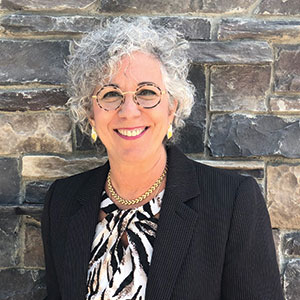By Lia Spiliotes
In recent months our lives have been consumed by the COVID-19 pandemic, which has stressed our nation’s health care system to the brink. The tragic police-involved deaths of Black Americans have demanded a broad reckoning about racial injustice and inequity in law enforcement, business and industry, education, government and communities.
You may also read this column in the Aug. 9, 2020 Berkshire Eagle
Health care is where these two crises intersect vividly. COVID-19 has revealed even more starkly what we have already known: People of color are disproportionately impacted by chronic conditions that diminish health and contribute to higher mortality risk.
George Floyd’s autopsy revealed that he had tested positive for COVID-19 weeks before his death. His autopsy also found that he had been living with heart disease and hypertension.
There are 1,400 community health centers in the U.S. caring for nearly 30 million people, and now we face a global pandemic. These centers promise health care for all who need it — including the George Floyds in our own communities. This promise was the founding principal of the health center movement that took shape in the 1970s, including here in our own rural community with Community Health Programs.
In Berkshire County, CHP cares for 35,000 people, many of whom suffer from chronic disease. Many have struggled to access affordable, quality care until finding us.
From Aug. 9 through Aug. 15, elected officials and communities are joining in recognition of National Health Center Week. They are recognizing community health centers’ front-line work in keeping our diverse communities healthy and safe. In partnership with supportive elected leaders, we believe it’s possible to move beyond partisan divides over health care in order to support and agree on a program vital to our communities.
While our approach is community-based and local, community health centers collectively are the backbone of the nation’s primary care system. Community health centers lower health care costs in the U.S. to the tune of $24 billion a year, reduce or manage chronic diseases for patients and stimulate local economies.
CHP provides comprehensive, whole-person medical and dental care. We offer a broad array of family services and food security programs, which are in high demand during COVID-19. We are not just healers, we are innovators who look beyond medical charts to consider factors that may cause poor health for our patients: poverty, homelessness, substance use, mental illness, lack of nutrition and unemployment. Among our own patients, 23 percent are nonwhite, and 32 percent have incomes qualifying them for Medicaid/MassHealth.
We are a critical player in our regional health care landscape, collaborating with health systems, local and state governments. We partner with social service and business partners and other community health organizations to improve health outcomes for people who are medically vulnerable. We have pivoted to serve our communities through telehealth, COVID-19 testing and continuing to ensure our patients can access basic necessities like food and housing resources.
While COVID-19 continues to exacerbate social and medical inequities across the country, we and other centers have stretched to reconfigure services for those in need. As COVID-19 related unemployment persists and people lose employer-sponsored health insurance, we must have ongoing support to provide care to all, regardless of insurance status.
CHP has alerted our elected officials to what we view as the most immediate and pressing issues impacting our patients’ care:
- The COVID-19 crisis has changed how we deliver care, and we believe telehealth is here to stay. We need prompt federal support for universal broadband technology to provide our patients with this care — especially in rural areas.
- CHP’s model of care is inclusive, with behavioral health professionals embedded in our medical practices. Reimbursements do not cover the cost of mental health care, and the need for equitable reimbursement for this care is urgent.
- Federal support and advocacy are essential to improve our transportation infrastructure, to ensure that patients (and employees) can get to our practice sites for in-person care.
- The need for food security programs is spiking dramatically during COVID-19. We work diligently to fill these gaps in food access by connecting people with SNAP, WIC and other programs and we receive food and financial donations. Federal food support programs like SNAP must be protected for our most vulnerable neighbors.
Congress must act immediately. Emergency and long-term, stable funding will ensure we can keep our doors open and close the growing access gap for medically vulnerable communities. We urge our elected officials to pledge support for community health center funding nationwide, which expires Nov. 30.
 In our own health center, we will continue to examine, evaluate and improve our role in providing care to our most vulnerable neighbors — and to all any and all comers in search of excellent health care.
In our own health center, we will continue to examine, evaluate and improve our role in providing care to our most vulnerable neighbors — and to all any and all comers in search of excellent health care.
Lia Spiliotes is the CEO of Community Health Programs in Berkshire County.

